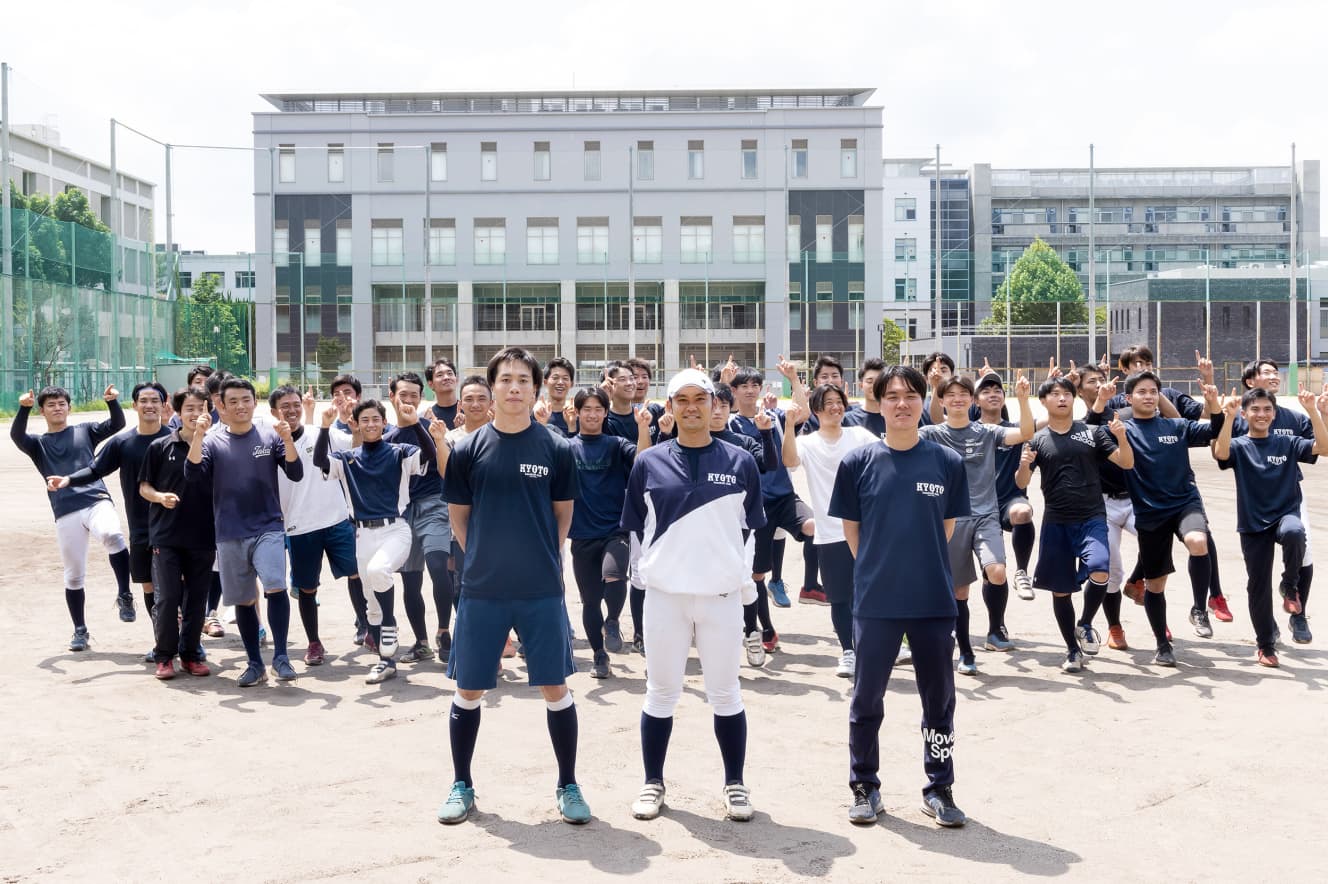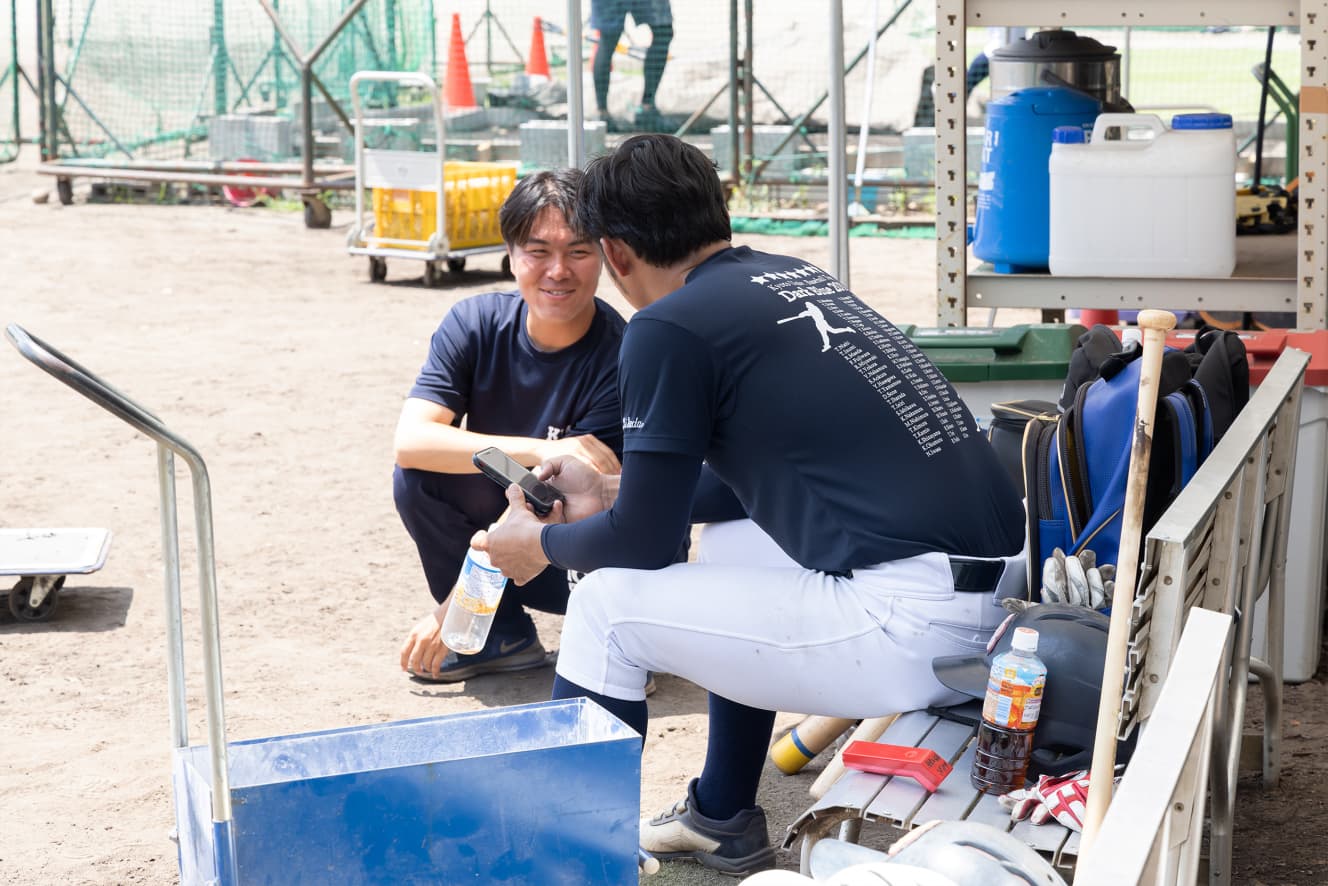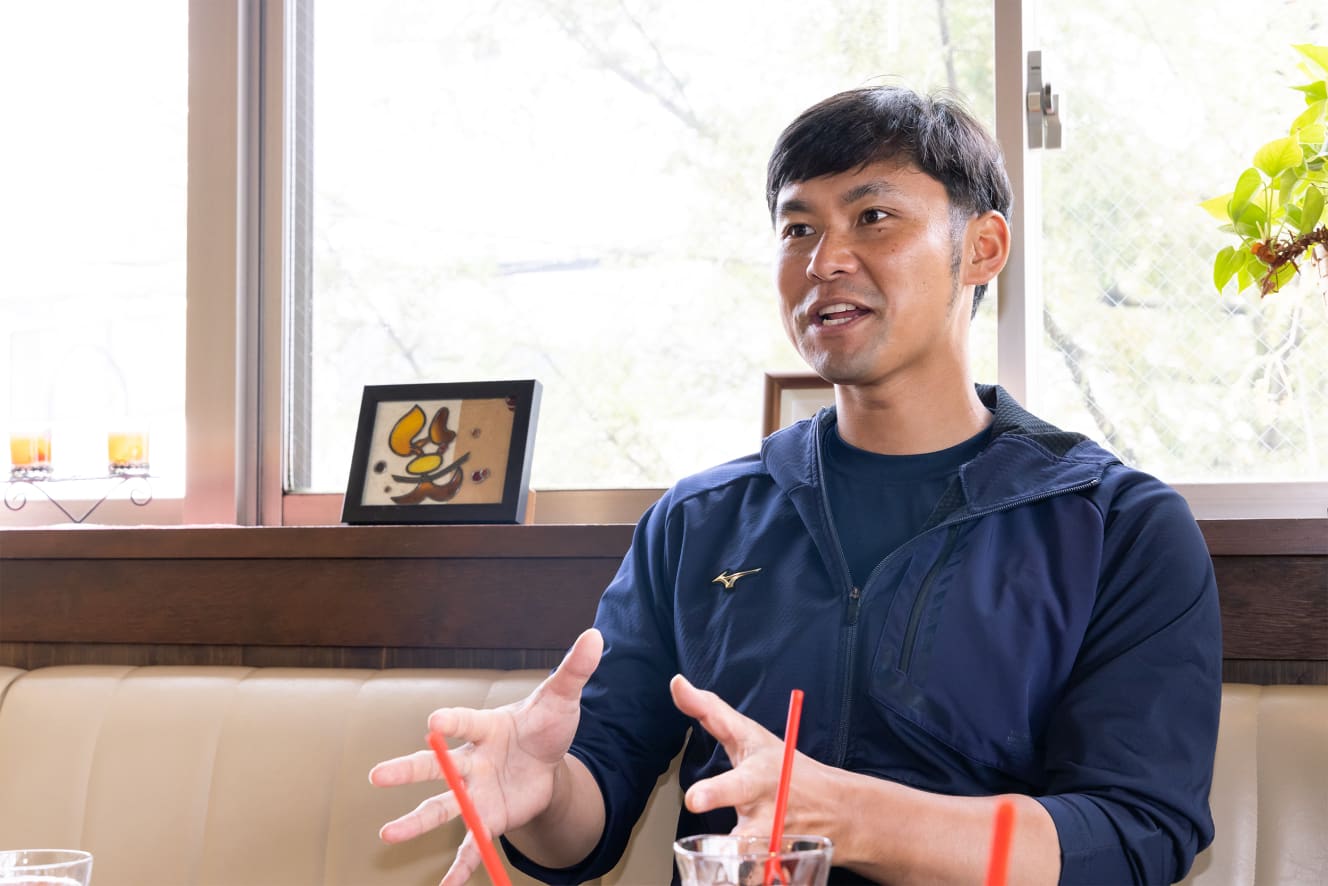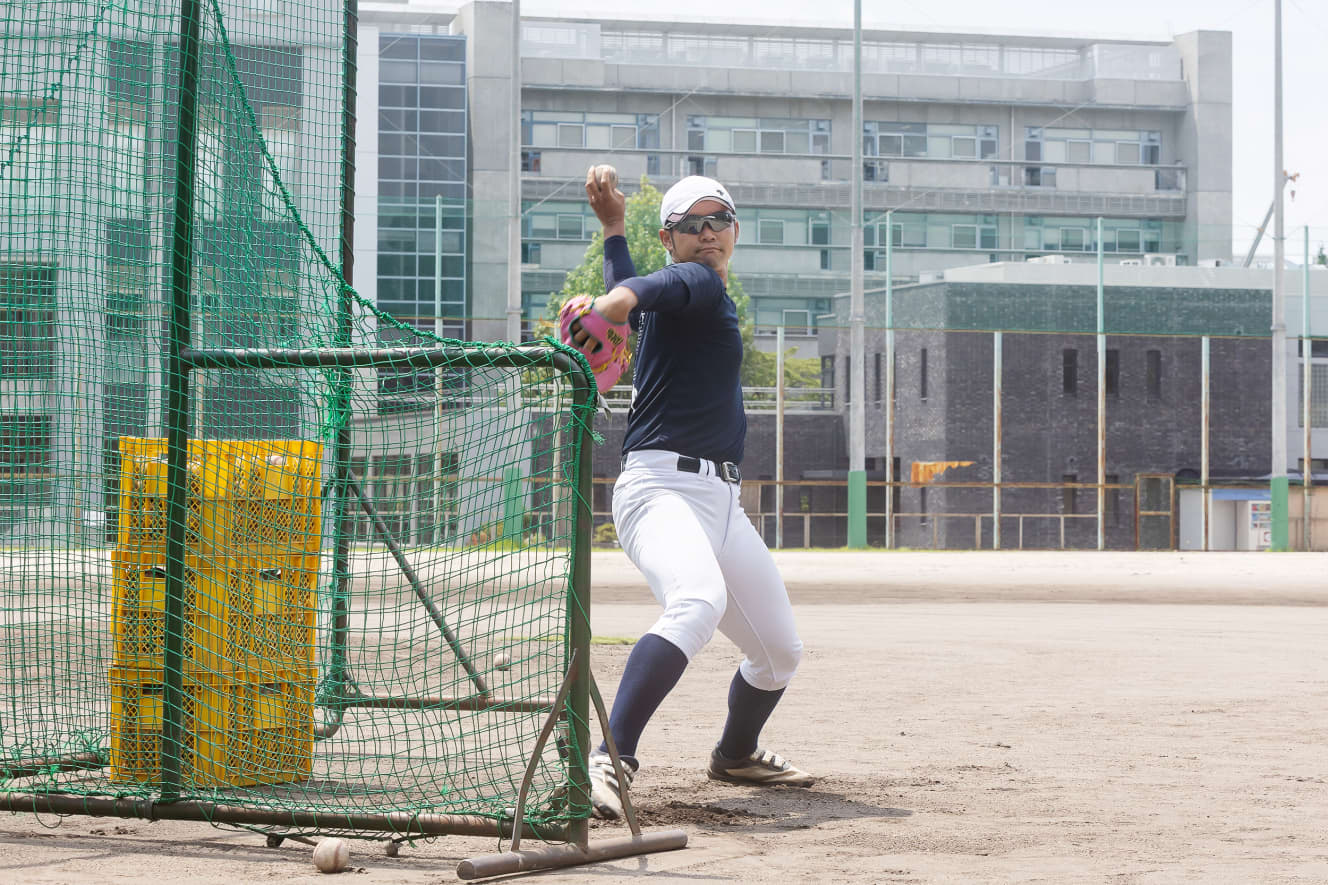The skillful manager who turned the “Kyoto University Baseball Club” into a powerhouse through meticulous data analysis
Reio Chikada (32), a weak team that used to be at the bottom of the standings, has become the eye of a typhoon The Kansai Student Baseball Federation Fall League opens on September 3.

If you think I’m not up to par, you can quit.
I visited Kyoto University’s baseball field without any expectations. However, when he saw the players play, he was surprised. They were able to double play defensively without difficulty and hit a series of sharp pitches in hitting practice.
Reo Chikada, 32, manager of the Kyoto University hardball team, recalls his shock at the time.
I had imagined players who wore glasses and had thin bodies, but they were all very strong. It was very different from the baseball I had experienced, where the players were always tense under a strict coach. The coaches rarely interfered, and the players talked among themselves. They asked for my opinion without hesitation. It made me feel toughened up and determined to face the game seriously.
Chikada took over as manager last November. In the Kansai Student Baseball League this spring, their first league game, they won five games, the most in the history of Kyoto University. They escaped from the bottom of the standings for the first time in two and a half years against strong private institutions such as Kinki University, from which former Hanshin player Teruaki Sato graduated, Kansai University, the alma mater of former Hanshin player Minoru Iwata, which won the championship last fall, Doshisha University, and Ritsumeikan University.
Chikada is a graduate of Houtoku Gakuen High School (Hyogo Prefecture), where he has been the left-handed ace since the fall of his freshman year, leading his team to the top eight in the summer of his junior year at Koshien with a 148 km/h fastball.” In the fall 2008 draft, Softbank selected him with the third overall pick. However, …….
‘The wall of the pros was thick,’ he said. When I saw the balls of Tsuyoshi Wada and Toshiya Sugiuchi, who are also left-handed, I felt that things were different. Even though the speed was the same, the sharpness was completely different.
He broke his left shoulder during an opening game in his second year, and although he worked out with the second and third teams, his powerful fastball never came back.
It was in the off-season of my fourth year that I was informed that I was out of the lineup. (I tried out for a 12-team team, but no team made a move to acquire me. I was only 22 years old. When I was thinking about becoming a coach in the future, JR West approached me. They said, ‘If you want to become an instructor, your experience in adult baseball will be a plus.’
The question was specific and physical.

After joining JR West, Mr. Chikada earnestly engages in company business as well as baseball in an effort to understand the company. At Sannomiya Station in Kobe City, he stood on the platform as a station attendant.
When a train was late, customers would yell at me, ‘Why didn’t you come on time? When the train was late, customers would yell at me, ‘Why didn’t you come on time? I had never been yelled at outside of baseball, so it was a new experience for me. What I learned was the importance of communication. If you don’t listen to what customers have to say and tell them what is going on and what you are going to do about it, they will not be convinced. My experience as a station attendant helped me a lot when I became a supervisor.
It was January 2005 when Katsuhiro Hasegawa, a former coach of Kyoto University and a senior employee of the company, asked him if he would watch a practice session at Kyoto University. Mr. Chikada readily agreed. The students asked the former professional baseball player many questions.
The content is specific and physical,’ he said. They would ask questions like, ‘Which muscles in the arm should I use to throw a strong ball? I had never thought about how to use muscles. I knew that a half-hearted answer would not convince him, so I gave him advice based on my own physical exercise and study of technical books.
At first, he promised to watch practice once a week, but the enthusiasm of the players led him to increase the frequency. He commutes two hours each way from the company dormitory in Nishinomiya City, Hyogo Prefecture. In September 2008, he was officially appointed assistant coach because the company had decided to transfer him to the company as part of its contribution to the local community.
He says, “I don’t tell them what to do from the top. Kyoto University students are smart. We don’t tell them, ‘Do it this way,'” he said. If you make them understand the essence of the problem, they will grow and develop. The fact that I did not have a track record as a professional was a big plus for me. If I had a track record, I might have pushed my experience of success on the students, and they might have rebelled against me.
After becoming manager, Mr. Chikada focused on the precise data that only a Kyoto University student could provide.
There is a member of our club named Daichi Mihara, who has been watching professional baseball and Major League Baseball games since he was a boy and maniacally analyzing pitchers’ pitch types and batting average per course. Kyoto University had introduced a machine called a ‘lapsword,’ which could measure the rotation speed and trajectory of a pitcher’s ball, but it was not being utilized properly. Mihara used the “Rapsword” to bring out the best in each pitcher. I leave the decision on how to use pitchers to Mihara.”
There was one game in which the data was spot on. It was against Kansai University in April this spring. Catcher Yusuke Aizawa, who had never pitched in a league game, was selected as the starter and contributed to the victory with four scoreless innings.
According to Mihara, Aizawa is a good catcher with a good command of the ball. He said he had no data as a pitcher and threw poorly, and that it would work well enough.”
To counter the fastballs of pitchers from other universities, Chikada took charge of batting pitching himself. Since power is no match for power, he makes sure his players play solid defense and aggressively run the bases.
We are not satisfied just because we went from the bottom of the standings to the center of a typhoon. Our goal is to change history. We really want to win the championship.
It seems that the first victory in the fall league season, which starts on September 3, is not just a dream.



Photo by: Kei Kato